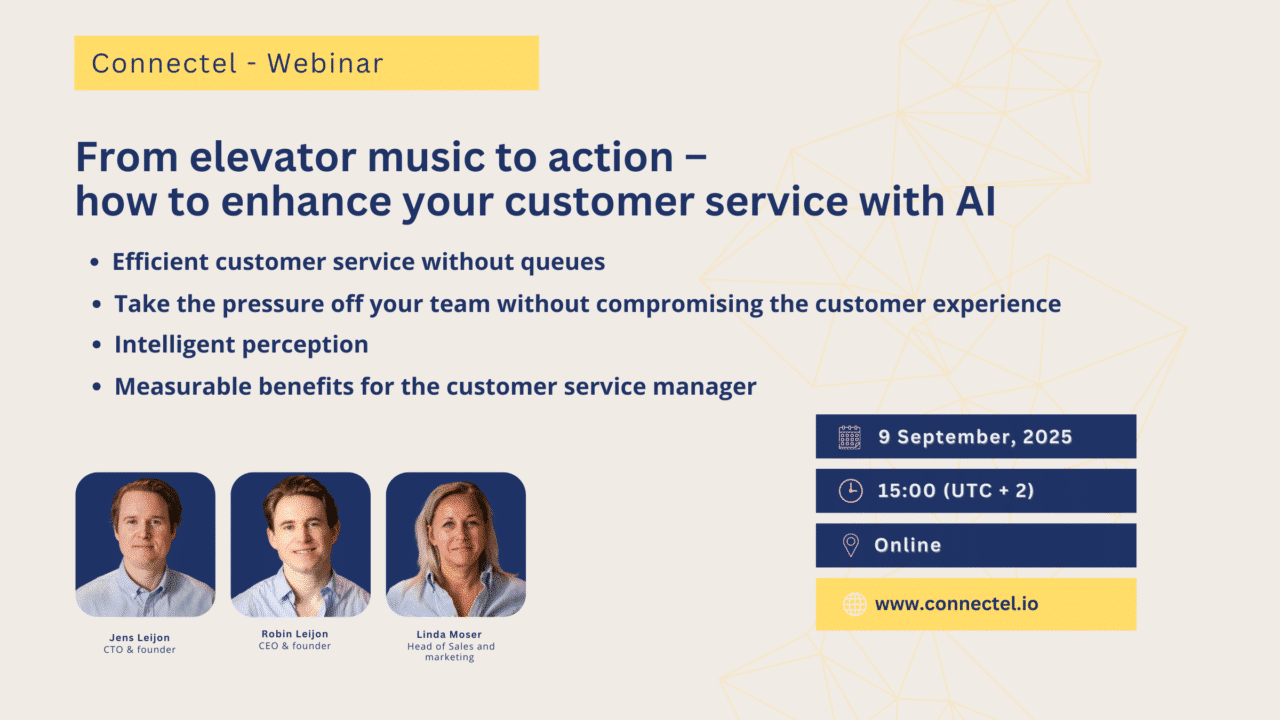
Understanding Customer Touchpoints Optimizes CX
Enhancing the Customer Experience: Understanding Customer Touchpoints
Delivering exceptional customer experience is a crucial differentiator for companies. To provide a seamless customer journey, it is essential to identify, optimize and understand customer touchpoints. In this article, we will go through what customer touchpoints actually are and give you actionable tips for customer service managers to enhance their customers’ experience.
What are Customer Touchpoints?
Customer touchpoints refer to the various interactions and points of contact a customer has with a company throughout their entire journey. These touchpoints can be both digital and physical and occur across multiple channels, including websites, social media, phone calls, emails, and in-store visits. Each touchpoint represents an opportunity to make a positive impression and build a strong relationship with customers.
Understanding the customer journey
To effectively optimize customer touchpoints, it is vital to understand the customer journey. The customer journey encompasses all the stages a customer goes through when interacting with your brand, from the initial awareness to post-purchase support. By mapping out this journey, you can identify key touchpoints and potential pain points, enabling you to take proactive measures to improve the overall customer experience.
Actionable Tips for Enhancing Customer Touchpoints:
Map out your current touchpoints
Start by conducting a thorough assessment of all your existing touchpoints. Analyze each touchpoint’s effectiveness and the customer experience it provides. Look for areas that need improvement, such as long response times, inconsistent messaging, or complicated processes. This audit will help you prioritize your efforts and focus on the touchpoints that have the most significant impact on customer satisfaction.
Ensure consistent branding
Consistency in branding is crucial for a cohesive customer experience. Ensure that your brand’s messaging, tone of voice, and visual identity remain consistent across all touchpoints. This consistency builds trust and reinforces your brand’s values and promises.
Personalize customer interactions
Customers appreciate personalized experiences. Leverage customer data and analytics to gain insights into individual preferences, purchase history, and past interactions. Use this information to tailor interactions and provide personalized recommendations, offers, and solutions. Personalization shows customers that you value them as individuals and enhances their overall satisfaction.
Optimize digital touchpoints
In today’s digital age, online touchpoints play a significant role in shaping the customer experience. Ensure that your website is user-friendly, intuitive, and responsive across devices. Simplify the navigation, streamline the checkout process, and provide clear and helpful information. Leverage live chat, chatbots, or virtual assistants to offer instant support and resolve customer queries promptly.
Empower customer service representatives
Your customer service representatives are vital touchpoints for customers. Invest in their training and empower them with the necessary tools and knowledge to deliver exceptional service. Encourage active listening, empathy, and problem-solving skills. Equip them with a comprehensive knowledge base that provides quick access to relevant information, enabling them to provide accurate and efficient assistance to customers.
Gather and act on customer feedback
Customer feedback is an invaluable resource for identifying touchpoints that need improvement. Implement mechanisms to collect feedback at various touchpoints, such as post-purchase surveys, social media listening, or customer reviews. Actively analyze this feedback and use it to identify trends, address pain points, and make iterative improvements to your touchpoints.
Encourage improvement
Optimizing customer touchpoints is an ongoing process. Encourage a culture of continuous improvement within your organization. Regularly review and update touchpoints based on changing customer expectations and emerging technologies. Embrace a mindset of agility and adaptability, enabling your company to stay ahead in delivering exceptional customer experiences.
Summary
In the era of heightened customer expectations, understanding and optimizing customer touchpoints is essential for delivering a superior customer experience. By conducting a touchpoint audit, ensuring consistent branding, personalizing interactions, optimizing digital touchpoints, empowering customer service representatives, gathering and acting on customer feedback, and fostering a culture of continuous improvement, customer service managers can create meaningful connections with customers at every stage of their journey. Remember, each touchpoint is an opportunity to make a lasting impression and cultivate customer loyalty.


